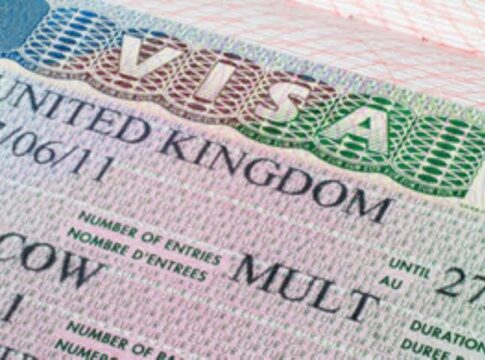The United Kingdom has earned over $34 million (₦68 billion) from processing 225,000 visa applications from Nigerians in a year, marking a significant contribution to its immigration revenue.
Between June 2023 and June 2024, these applications spanned various categories, underscoring Nigeria’s strong demand for UK visas. Despite the substantial revenue, rejection rates for Nigerian applicants have surged, reflecting the UK government’s tightening immigration policies.
Marc Owen, director of visa, status, and information services at UK Visas and Immigration (UKVI), revealed the figures while inaugurating Africa’s largest UK Visa Application Centre (VAC) in Lagos. “In the year to June 2024, we processed more than 225,000 UK visas for Nigerian nationals across all categories. This new partnership demonstrates our commitment to accessible and efficient visa services,” Owen stated.
Sharp Rejection Rate Increase
Recent UK government data showed Nigeria ranked among the top five countries with rising study visa rejection rates. By mid-2023, one in eight Nigerian study visa applications was denied—an increase from one in 31 at the end of 2022.
READ MORE: Kukah Criticizes Tinubu, Buhari as Accidental Leaders; Presidency Defends Reform Efforts
India surpassed Nigeria in absolute rejections, but other countries like Vietnam, Indonesia, and Saudi Arabia faced comparable challenges despite submitting fewer applications.
The rejection rate coincided with stricter UK immigration policies, reducing visa approvals for Nigerians by 63% in the first half of 2023 compared to the previous year.
Non-Refundable Visa Fees Add Pressure
The current standard UK six-month visitor visa costs $150 (₦120,000), with fees non-refundable regardless of the application outcome. For many Nigerians, this makes visa denials not just a setback but also a financial strain.
Owen expressed optimism about the Lagos VAC inauguration, emphasising its role in streamlining visa services. “We are delighted to mark this milestone alongside our customers and partners, ensuring an improved experience for Nigerian applicants,” he said.
The surge in applications highlights Nigeria’s growing interest in studying, working, or visiting the UK, even amid stricter policies and mounting rejection rates.




